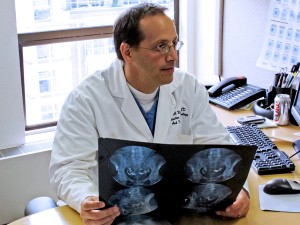While it has been known that chemotherapy does have an influence on the fertility of women, latest studies have revealed that the actual repercussions are much higher than perceived today. The research was carried out in the University of California, San Francisco. The study was conducted on analyzing long term effects of chemotherapy and the results were shocking. According to previous reports, all that was known about the after effects of chemotherapy on woman fertility was a condition known as amenorrhea. This is a condition in which menstruation stops for a while during and after treatment. However, the latest studies have shown that in addition to amenorrhea, early menopause and increase in infertility are the two major side effects. As a result of this research, doctors will able to take decisions regarding important health issues like egg harvesting since the after-chemotherapy scenario may not aid conception and pregnancy.
Chemotherapy has been showed to damage ovaries, even after the amenorrhea stage. According to Mitchell Rosen, assistant professor in University of California and lead author of the study, it is necessary to preserve fertility since there is a known loss of the same after treatment.  The current knowledge about the effects of chemotherapy is very limited. Of all the women who were considered for the present study, all of whom had undergone chemotherapy, many of them were under the impression that once menstruation had begun, there would be no need to worry and everything would be normal. They confessed to having been convinced of the same by medial practitioners. Out of 1041 women cancer patients who were covered under the study, 620 were administered only chemotherapy treatment.
The current knowledge about the effects of chemotherapy is very limited. Of all the women who were considered for the present study, all of whom had undergone chemotherapy, many of them were under the impression that once menstruation had begun, there would be no need to worry and everything would be normal. They confessed to having been convinced of the same by medial practitioners. Out of 1041 women cancer patients who were covered under the study, 620 were administered only chemotherapy treatment.
For the study, women who had suffered from non gynecologic cancers were considered so that a neutral benchmark for fertility tests could be established. The cancers considered were Hodgkin’s disease, breast cancer, leukemia, gastrointestinal cancers and non-Hodgkin’s lymphoma. Important gynecologist factors such as failure of ovaries, early menopause and infertility were studied. It was found that there was an increase of up to 10% in acute ovarian failures in women who underwent chemotherapy. The incidence of damage increased with age at the time of diagnosis. Infertility increased in chemotherapy patients by 18% for those who were 20 years old at the time of diagnosis and by 57% for those diagnosed at 35. Early menopause was found to increase by 56% for women at 20 and by 16% for those at 35. The study has shown that age is an important factor to consider in a woman who is diagnosed with cancer and has to undergo chemotherapy.